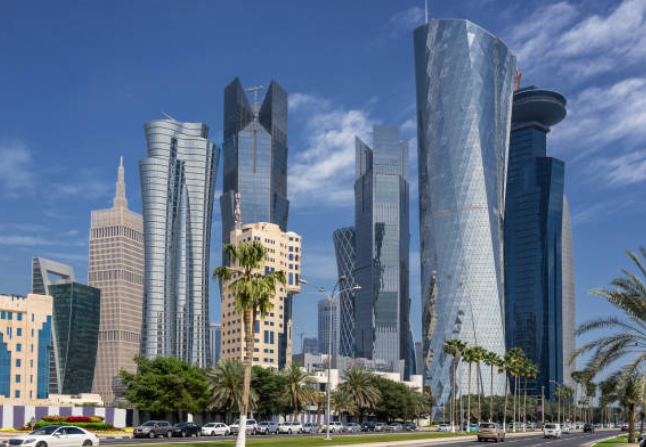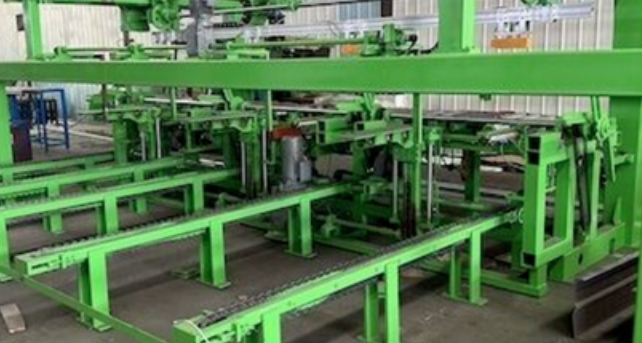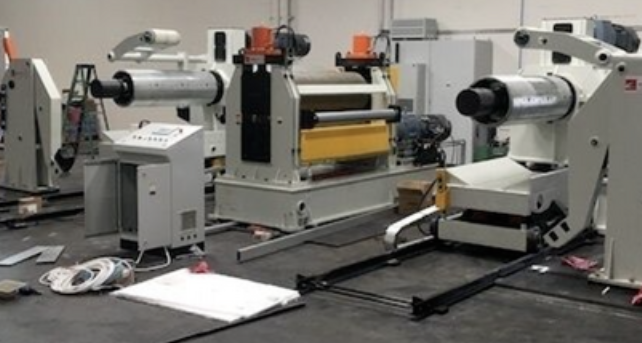
Posted on Sunday, October 13, 2024
The metal construction industry in Saudi Arabia is experiencing significant transformation, driven by economic diversification and ambitious infrastructure projects. This blog explores current trends in the Saudi metal construction market and examines how roll forming machines align with these trends, focusing on the shift toward lightweight materials and modular construction.
Saudi Arabia's Vision 2030 initiative aims to reduce the country's dependence on oil by diversifying its economy. As a result, massive urban development projects, such as NEOM and the Red Sea Project, are underway. These projects require efficient construction methods and materials that can keep pace with rapid urbanization.
One of the notable trends in the Saudi metal construction sector is the increasing preference for lightweight materials. Lightweight metals, such as aluminum and thin-gauge steel, are gaining popularity due to their ease of handling, reduced transportation costs, and ability to enhance energy efficiency.
Roll Forming Advantage: Roll forming machines are ideal for producing lightweight metal components. They can create precise, uniform profiles from thin sheets, ensuring structural integrity without adding unnecessary weight. This is particularly beneficial for applications in roofing, wall cladding, and structural support systems.
Modular construction is gaining traction in Saudi Arabia as a solution to meet the demand for quick and efficient building methods. Prefabricated structures can be assembled on-site, significantly reducing construction time and costs.
Roll Forming Role: Roll forming technology plays a crucial role in modular construction by enabling the production of custom components, such as wall panels, roof trusses, and framing elements. The precision of roll forming allows for seamless integration of these components, facilitating faster assembly and enhancing overall project efficiency.
Sustainability is becoming a key consideration in construction practices, with a growing emphasis on energy-efficient designs and materials. Roll forming machines can produce components that support energy-saving initiatives, such as insulated panels and reflective roofing materials.
Environmental Benefits: By utilizing recycled materials and producing minimal waste during the roll forming process, manufacturers can contribute to sustainable construction practices, aligning with Saudi Arabia's commitment to environmental responsibility.
The integration of advanced technologies, such as automation and digital manufacturing, is revolutionizing the metal construction industry in Saudi Arabia. Smart roll forming machines equipped with IoT capabilities are becoming essential for optimizing production processes, reducing labor costs, and ensuring high-quality output.
As Saudi Arabia continues to pursue its Vision 2030 goals, the metal construction industry is poised for significant growth. Roll forming machines are at the forefront of this evolution, enabling the production of lightweight, modular, and sustainable building components. By embracing these trends, manufacturers can position themselves to meet the demands of a rapidly changing market, ultimately contributing to the Kingdom's ambitious infrastructure development plans.

Used Roll Forming Machines for Sale Worldwide
Posted on Tuesday, January 20, 2026
Pre-Owned Roll Forming Machines with Inspection, Verification & Global Support

Steel Coil Supply for Roll Forming Machines Worldwide
Posted on Tuesday, January 20, 2026
Reliable Steel Coil Supply for Roll Forming, Fabrication & Manufacturing Applications

Auto Stackers for Sale Worldwide
Posted on Tuesday, January 20, 2026
Automated Stacking Systems for Roll Forming & Sheet Metal Production Lines

Embossing Machines for Sale Worldwide
Posted on Tuesday, January 20, 2026
Precision Metal Embossing Machines for Textured & Patterned Sheet Production
Copyright 2026 © Machine Matcher.